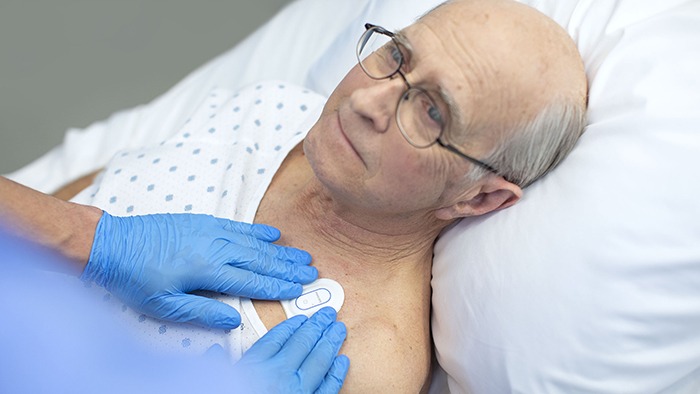
Royal Philips has secured 510(k) clearance from the US Food and Drug Administration (FDA) for its next-generation wearable biosensor to better manage confirmed and suspected Covid-19 patients in the hospital.
Philips Biosensor BX100 allows improving the clinical surveillance in the company’s patient deterioration detection solution to help clinicians identify risk, enabling to offer better treatment for patients in lower acuity care areas.
The wearable biosensor, which already secured CE mark approval, is currently in use at the OLVG Hospital in the Netherlands to manage the triage and clinical surveillance of COVID-19 patients.
Philips has designed the next generation wearable biosensor to offer a new approach to vital signs measurements and support surveillance of higher acuity patients moving from intensive care units into lower acuity general care areas of a hospital.
The disposable biosensor has to be used for patients 18 years of age and older
The lightweight and disposable biosensor is a five-day single-use wearable patch that can be incorporated with a scalable hub for the monitoring of multiple patients across multiple rooms.
The biosensor can be integrated into existing clinical workflows for mobile viewing and notifications, and it is free from cleaning or charging.
Philips’ medical-grade wireless wearable biosensor has to be used by healthcare professionals on patients 18 years of age and older.
It easily adheres to the chest to collect, store, measure and transmit respiratory rate and heart rate every minute, as well as contextual parameters such as posture, activity level and ambulation.
Philips analytics and monitoring general manager Peter Ziese said: “During this unprecedented time of COVID-19, the Philips Biosensor BX100 helps provide rapid deployment for clinical surveillance to help decrease risk of exposure of healthcare workers while acquiring frequent patient vitals, and easing the demand for personal protective equipment (PPE),”
“The biosensor is an integral component in our Patient Deterioration Detection solution which helps aid in the identification of the subtle signs of deterioration in a patient’s condition at the point of care, hours before a potential adverse event would occur.”
Recently, Philips also secured 510(k) clearance from the FDAfor its wider range of ultrasound solutions to manage Covid-19-related lung and cardiac complications.






